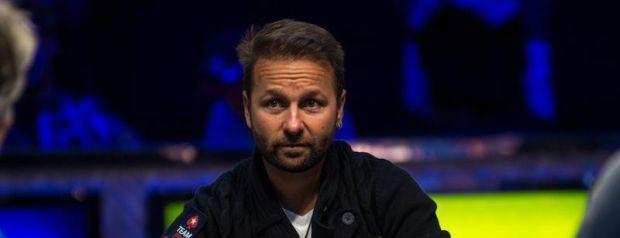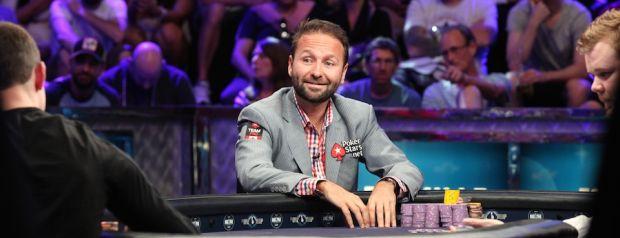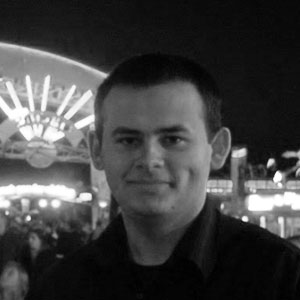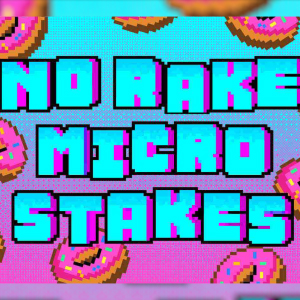Daniel Negreanu Hand Reads: How Does He Do it?
9 years ago
19 Jul
(Photo: Pokerstars.com)
Daniel Negreanu is one of the most popular and respected figures in the poker world. Fans of the game and pros alike often refer to him as the ambassador of poker. Negreanu is very talkative, he often speaks his mind, he cares about the aspects of life that aren't strictly poker related like health, mindset, and nutrition, and he's also a great player, especially when we consider his favorite poker format - tournaments. Perhaps the most famous part of Daniel's game is his uncanny ability to guess the specific holdings of his opponents during the course of the hand.

The Four Stages of Competence
To understand why Daniel Negreanu is so good at soul-reading his opponents we should briefly consider the "conscious competence" learning model that we know from psychology. According to this model the learning process of any skill can be broken down using four different stages: unconscious incompetence, conscious incompetence, conscious competence, unconscious competence (also known as wrong intuition, wrong analysis, right analysis, right intuition).
In the unconscious incompetence stage, you don't know that you don't know something, the example of that can be any poker player before he or she learned about what poker is. Conscious incompetence is the state in which you know that you don't know how to do something, which was certainly the case after you've learned how to play poker but before you watched your first coaching videos and read your first strategy articles. Conscious competence is the next natural step when you understand how to do something but the act of doing it requires you to invest a considerable amount of your mental resources. This is the stage most competent hobbyists and semi or even pro players are in. They are fairly competent at the game but as soon as they hit the auto-pilot switch, all of that competence goes down the proverbial drain.
Finally, the unconscious competence is the stage Daniel Negreanu (and other similarly skilled players) is in. Unconscious competence is the result of thousands of hours of training combined with a great amount of experience. It this stage the skill becomes your "second nature" and you're able to produce better results relying solely on intuition than others can when relying on their concentration and reasoning.
Play by Play
Enough with the theory! Let's take a look at some examples from the video below and try to figure out how Daniel Negreanu manages to make those amazing soul-reads that we all love watching.
The first hand involving Kornuth and Pollak was a simple case of correctly reading table dynamics based on previous history, stack sizes, and experience. Daniel has been in this type of spot so many times throughout his tournament career that he can intuitively assign accurate ranges to other players.
It's important to point out that when Daniel says "he had 88 or 99" what he really means is "he had a narrow range consisting of medium pocket pairs and maybe some strong Ax type hands". However, stating the exact hand is much better for TV and for the fans, plus it may offer Daniel more psychological edge over his opponents. Very few people will be impressed by analytical mumbo jumbo, but guessing the exact hand of your opponent is a different thing altogether, especially in the context of televised poker with bright lights shining everywhere. Convincing someone that you can soul-read him is very intimidating and might cause him to make some major mistakes in the future. If nothing else, they'll be playing tighter out of fear of getting caught in a bluff.
The second hand shows us precisely that. Daniel obviously isn't putting McClean on aces only because in that case, calling the flop with a top pair would be an obvious mistake. Instead, he's putting him on a very tight range and calling out the most flashy part of that range in hope that he guesses correctly and throws his opponent off guard (which is precisely what happened). If you can buy yourself two free cards in spots like that, by simply talking your opponent into a passive play with a monster, it's easy to stay on top of the poker world for a very long time.
In the next hand against Todd Brunson, Daniel shows off his head's up experience proving that putting opponents on strong ranges in somewhat obvious spots is not the only play in his arsenal. Again, Daniel was in this kind of spot so many times that if you combine it with small bits of information like the exposed cards and the long time that the opponent is taking to make a decision, calling out the exact hand no longer seems like the impossible feat.
In the hand number four, Esfandiari made a similar mistake to Todd Brunson before him by simply giving Daniel a little bit too much information. The one sentence of reasoning voiced out loud, "You have ace, ten, huh?" was enough to cause him to miss some easy thin value bets that he would no doubt get from less skilled players.

Soul-reading Trout in the following hand might not seem like much (when your opponent is raising on four to a straight figuring out his most likely holding is not rocket science), but what makes it particularly interesting is guessing the kicker correctly. Negreanu realizes that both his hand and board block the popular 9x suited connector type hands like T9, 98, 97 or 96 so the kicker is most likely a high card. We can only guess how much respect in the form of free cards Daniel got from Trout after that hand, but judging from his opponent's reaction ("You're a sick man!") it's safe to assume that the number was higher than zero.
You'd think that it would be hard to read the facial expression of a seasoned live game pro like Sammy Farha, but that's not the case for Daniel Negreanu. Combine it with the fact that 92s was kind of a theme during that high stakes poker session and you get why Sammy's reaction allowed Daniel to make such a precise and impressive guess.
In another high stakes poker hand against Doyle, similarly to the McClean hand before, Daniel correctly assigns a tight range of hands to Doyle Brunson but he's naming only the most likely part (the one he doesn't block with his Ace). Again, if Negreanu was really putting Doyle on 33 only calling with a top pair would be a mistake but Daniel isn't your garden variety live casino degen who's putting opponents on single holding and believing it. Instead, he realizes that poker is the game of ranges and it would be too weak to fold top pair on the flop vs. just about every competent player. This doesn't change the fact that calling out a single hand is a much more powerful act than calling out your best approximation of his range.
The last hand of the video spiced up by a colorful banter between Tony G and Phil Hellmuth is the best example of the unconscious competence at work. Negreanu is laughing so hard at the aforementioned banter that he shouldn't be able to make any conscious observations about the hand and yet he manages to prove us all wrong by correcting the surprisingly competent guess of Phil's mindset coach who was watching the game with him.
At this point, you hopefully gained some insight into Daniel Negreanu's soul-reading skills. It's not voodoo magic or God given talent (alone). It's simply a matter of hard work and mastery gained over the course of many years of playing poker at the highest level.






Comments
You need to be logged in to post a new comment